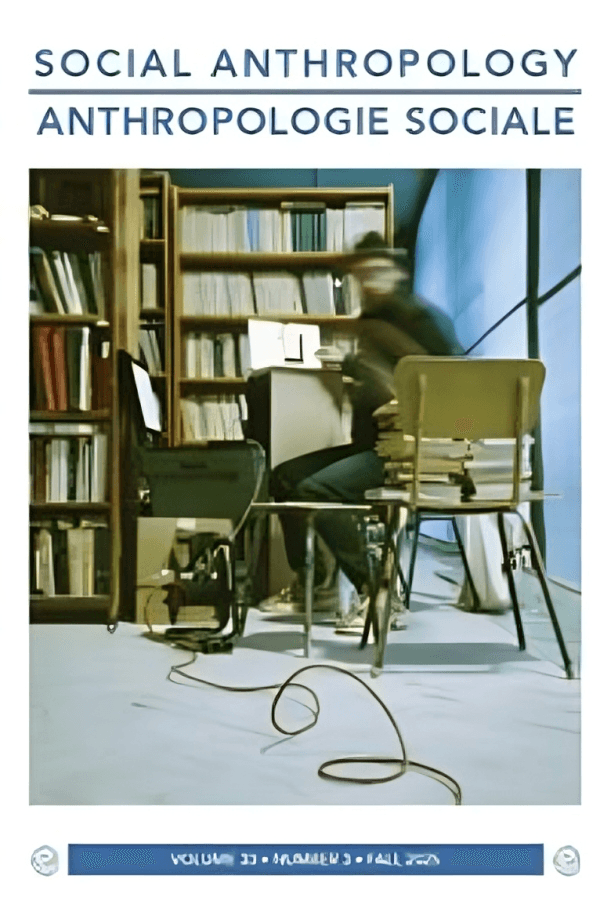
Anthropology as a Practice and as a Discipline: Mutual Redefinitions in an Expanded Ethnography
Social Anthropology 2025
This article provides a new take on the possibilities – and limits – of experimental collaborations for ethnographic research and how they might lead to shifts back in the disciplinary core. The series of ethnographic experiments outlined here help us rethink and, eventually, re-design our own tools and protocols of relevance in anthropology. By showing how art exhibitions can be used for knowledge-making, curatorial anthropology expands the notion of field and fieldwork, facilitating the participation of practitioners of different backgrounds in our ethnographies.
An expanded ethnography assumes that experimentation involves doing things differently, and not only with other means, providing resources and arranging venues through which to forge new kinds of relations. Furthermore, establishing the conditions for transforming ethnography into an experiment involves distributing analytical and representational capacities while reconfiguring the roles and responsibilities of research.
A more inclusive take on fieldwork allows us to open up a myriad of possible roles for anthropologists beyond observation and description, as these roles become themselves the object of ethnographic attention. This could benefit anthropologists and the discipline itself, as we are seeking to reach wider publics and navigate the contemporary complexities of authority and representation.
Keywords: art and anthropology, boundary work, disciplinary relevance, experimental collaborations, curatorial anthropology; transdisciplinary collaborations
--------
“Expanded forms of ethnographic research entail the recognition of epistemological pluralism as a resource rather than a problem, allowing anthropologists to actively involve the people being studied.” p. 66
“Experimental collaborations hold out the promise of a sustained epistemic change while continuing anthropology’s intellectual heterodoxy as a discipline.” p. 67
“To whom should we be accountable: to our funders, to our colleagues in the department, to our institution and its ranking needs, or to the communities in which we conduct research? ... The distance between the practice of anthropology and the discipline of anthropology seems to be increasing.” p. 69
“Exhibition-making is an exercise in producing knowledge with others, who act as complicit interlocutors rather than merely as informants.” p. 71
“This promiscuous take on ethnographic research demands the anthropologist to be an active participant in the construction of the field, not just an observer.” 72-3.
“Collaborations in the field cannot be prefigured to the end and don’t follow linear trajectories.” p. 73
“The anthropologist has to let go of part of the burden of disciplinary credibility and rigour in order to cultivate surprise and develop more inclusive analytical relations.” p. 77
“By cultivating surprise and wonder in the field we can explore different modes of problematisation as well as propose novel forms of methodological renewal.” p. 78
“An expanded ethnography assumes that experimentation involves doing things differently, and not only with other means... Future experiments might extend beyond collaborations with artists and designers to include AI systems, activists, or even non-human agents, opening anthropology to radically new interlocutors.” p. 79
“By cultivating epistemic generosity rather than methodological rigidity, our discipline may not only redefine its practices but also expand its publics, affirming its relevance in an increasingly entangled world.” p. 80
